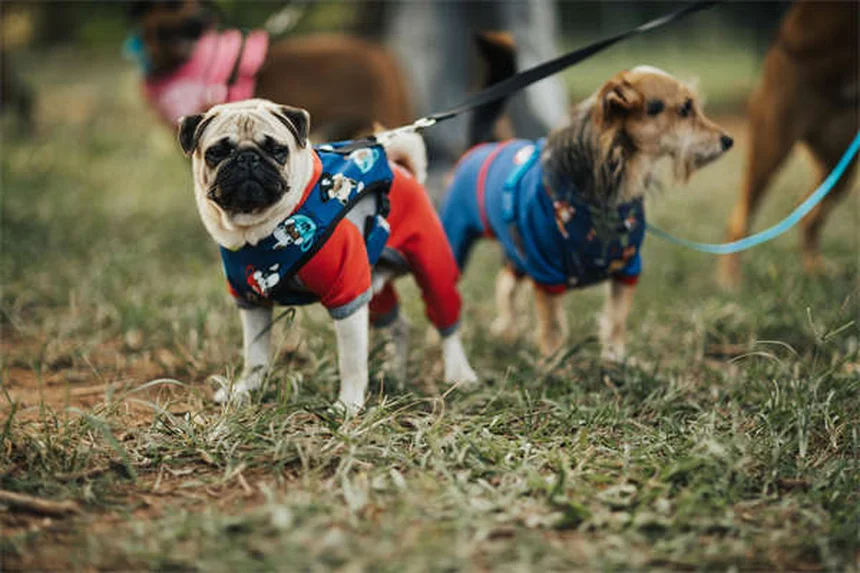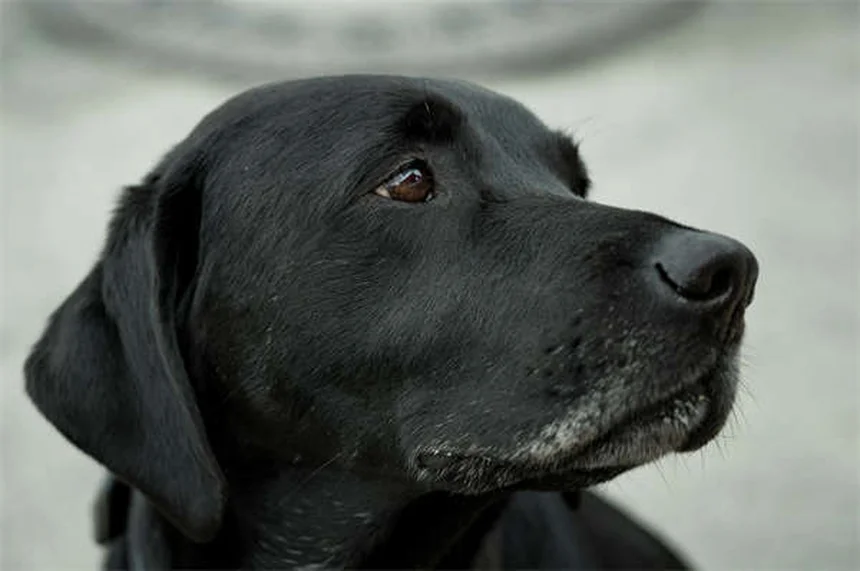Advertisement
Is your dog showing signs of congestive heart failure? The hard truth is: congestive heart failure in dogs is typically not reversible, but understanding the signs can help you provide the best care possible. I've worked with countless pet owners navigating this difficult journey, and here's what you need to know right now.When CHF reaches late stages (C and D), you'll notice clear symptoms like constant panting, difficulty breathing, and extreme fatigue. But here's the good news - with proper management, many dogs maintain good quality of life for months or even years. My neighbor's golden retriever Max has been thriving with Stage C CHF for two years now! The key is recognizing these signs early and working closely with your vet to create a customized care plan.
E.g. :7 Best Enrichment Toys for Dogs That Keep Their Minds Sharp
- 1、Understanding Congestive Heart Failure in Dogs
- 2、Managing Your Dog's CHF Journey
- 3、Making Tough Decisions with Compassion
- 4、Living Fully With CHF
- 5、Beyond the Basics: Additional Considerations for CHF Care
- 6、Alternative Therapies Worth Considering
- 7、Preparing for the Unexpected
- 8、The Silver Linings You Might Not Expect
- 9、FAQs
Understanding Congestive Heart Failure in Dogs
The Stages of CHF: What You Need to Know
Let me break this down for you in simple terms. Congestive heart failure (CHF) in dogs progresses through different stages, kind of like levels in a video game - but definitely not as fun. Here's the deal:
| Stage | What's Happening | What You Might Notice |
|---|---|---|
| Stage A | High risk but no symptoms | Nothing visible - your pup seems perfectly fine |
| Stage B1 | Heart murmur detected | Vet hears something unusual with stethoscope |
| Stage B2 | Heart changes visible on tests | Still acting normal, but tests show issues |
| Stage C | Visible symptoms appear | Coughing, tiredness, breathing changes |
| Stage D | Advanced CHF | Medications stop working well |
Now here's something important - just because your dog reaches Stage C or D doesn't mean it's game over. Many pups live happy lives for months or even years with proper care. My neighbor's golden retriever, Max, was diagnosed at Stage C two years ago and he's still stealing socks from the laundry basket!
Spotting the Warning Signs
Ever notice your dog acting different? Here are the red flags to watch for:
"Why is my dog panting so much when we're just sitting around?" Great question! Excessive panting, especially when resting, is one of the most common signs. Other symptoms include:
- A cough that sounds like they're trying to clear their throat
- Getting winded after short walks
- That "I'm too tired to play" look in their eyes
- A belly that looks swollen (like they ate a basketball)
Remember my friend's beagle, Lucy? She started refusing her favorite treats - that's when they knew something was wrong. Changes in appetite can be a big clue too.
Managing Your Dog's CHF Journey
 Photos provided by pixabay
Photos provided by pixabay
Treatment Options That Actually Work
Here's the good news - modern veterinary medicine has come a long way! While we can't cure CHF, we can definitely manage it. Your vet might recommend:
Medications: These are like little helpers for your dog's heart. Some reduce fluid buildup, others help the heart pump better. It's like giving your car better oil and fuel - same engine, just runs smoother.
Lifestyle changes: This might mean shorter walks but more frequent ones. Think of it as quality over quantity. And yes, that might mean saying goodbye to those 5-mile hikes, but hello to more couch cuddle time!
Creating a Comfortable Environment
Small changes at home can make a big difference:
• Elevate food and water bowls - less neck strain means easier breathing
• Use harnesses instead of collars - no pressure on the throat
• Keep the house cool - overheating makes breathing harder
• Consider an air purifier - cleaner air helps those sensitive lungs
I helped my cousin set up a "CHF-friendly" living room for his bulldog. We added memory foam beds near the windows (so he could still people-watch) and put fans in strategic spots. The difference was amazing!
Making Tough Decisions with Compassion
Quality of Life: More Than Just Numbers
"How do I know when it's time?" This is the hardest question any pet owner faces. Here's my advice: make a list of your dog's favorite things. When they can't enjoy most of them anymore, it's time to have that tough conversation with your vet.
Some questions to ask yourself:
1. Does my dog still wag their tail when I come home?
2. Are they eating with enjoyment?
3. Can they move around without struggling?
4. Do they seem content most of the time?
Keep a simple journal - note good days and bad days. When the bad outnumber the good, you'll know. But remember, you're not alone in this. Your vet team and fellow pet owners understand exactly what you're going through.
 Photos provided by pixabay
Photos provided by pixabay
Treatment Options That Actually Work
There are amazing resources out there:
• Online support groups (trust me, they help)
• Veterinary hospice services
• Pet loss counseling
• 24/7 vet hotlines for those 2am worry sessions
Last month, I volunteered at a "Paws for Comfort" event where vets provided free consultations for CHF dogs. The stories I heard... they reminded me that while CHF is tough, the love between pets and their people is tougher.
Living Fully With CHF
Celebrating the Good Days
Here's something we don't talk about enough - dogs with CHF can still have wonderful, joyful lives! I've seen dogs:
• Go on gentle beach vacations
• Enjoy "puppy ice cream" dates
• Have birthday parties with all their dog friends
• Become therapy dogs at nursing homes
The key is adjusting expectations, not eliminating happiness. Your dog might not run marathons anymore, but they can still be the best couch potato companion ever!
Creating Lasting Memories
Consider making a "bucket list" for your pup. Some ideas:
- Professional photo shoot
- Special trip to their favorite park
- "Puppy party" with all their favorite people
- Paw print keepsakes
- Extra spoiled days with all their favorite treats
A client of mine made a scrapbook called "The Adventures of Buddy" documenting their CHF journey. It started as sad entries but turned into this beautiful celebration of their time together. That book now helps other pet owners facing similar situations.
At the end of the day, CHF is just one part of your dog's story. With love, proper care, and support, you can write many more happy chapters together. And when the time comes, you'll know you gave them the best life possible - every single day.
Beyond the Basics: Additional Considerations for CHF Care
 Photos provided by pixabay
Photos provided by pixabay
Treatment Options That Actually Work
Let's talk about something we often brush under the rug - how this affects you. Caring for a dog with CHF isn't just physically demanding; it's an emotional rollercoaster. I remember when my own dog was diagnosed, I'd wake up at 3 AM just to check if he was still breathing. Sound familiar?
The constant worry can be exhausting. You might find yourself:• Second-guessing every little cough• Feeling guilty about missing medication times• Avoiding social events to stay home with your pup• Getting frustrated when they have bad days
Here's what helped me: setting up a "support squad" of friends who could take turns checking in. We created a group chat called "Team Fluffy" where I could vent or celebrate small victories. You don't have to do this alone - even superheroes need sidekicks!
Financial Planning for Long-Term Care
Let's get real about the elephant in the room - vet bills. CHF treatment isn't cheap, but there are ways to manage:
| Expense | Average Cost | Money-Saving Tips |
|---|---|---|
| Initial Diagnosis | $300-$800 | Ask about payment plans |
| Monthly Medications | $50-$200 | Compare online pharmacies |
| Emergency Visits | $500-$3000 | Pet insurance can help |
| Specialty Foods | $30-$100/month | Ask vet for samples first |
I've seen creative solutions work wonders - one client started a "medical fund" jar where family members contributed instead of buying birthday gifts. Another organized a neighborhood dog wash fundraiser. Where there's a will, there's usually a way.
Alternative Therapies Worth Considering
Complementary Approaches That Help
While traditional meds are essential, some extra tools might give your pup an edge:
"Can acupuncture really help a dog with CHF?" Surprisingly, yes! Veterinary acupuncture isn't just for hipsters in Portland - it can improve circulation and reduce stress. Other options include:• Gentle canine massage (YouTube has great tutorials)• Hydrotherapy in shallow water• CBD products (with vet approval)• Calming pheromone diffusers
My friend's pug, Mr. Wrinkles, does "aqua yoga" in a kiddie pool twice a week. The buoyancy takes pressure off his heart while keeping him active. Plus, he looks adorable in his little life vest!
The Power of Nutrition
Food becomes medicine when dealing with CHF. Here's what you should know:
• Low-sodium is key - but don't go overboard (dogs need some salt)• Omega-3s are heart heroes (think fish oil supplements)• Smaller, more frequent meals prevent bloating• Hydration matters - but monitor fluid intake if your vet recommends restrictions
I worked with a veterinary nutritionist to create "heart-healthy pupcakes" for a client's dog's birthday. The secret ingredient? Pureed pumpkin and a dash of turmeric. The birthday boy licked the plate clean!
Preparing for the Unexpected
Emergency Readiness 101
CHF can sometimes lead to scary situations. Being prepared can make all the difference:
Create an "emergency go-bag" with:✓ Copies of medical records✓ Extra medications (rotated to stay fresh)✓ Your vet's after-hours contact info✓ A list of emergency animal hospitals✓ A favorite blanket or toy for comfort
Practice loading your dog into the car quickly. Time matters during a crisis. I keep a folded towel in my trunk specifically for making emergency "ramps" or creating a comfy spot at the vet.
When to Rush to the Vet
Some symptoms demand immediate attention:
- Blue-tinged gums or tongue- Collapsing or inability to stand- Extreme difficulty breathing (like they're gasping for air)- Sudden abdominal swelling- Unresponsive or disoriented behavior
Pro tip: Take video of concerning symptoms when possible. It helps vets see what's happening when you're not in the office. My vet actually diagnosed a client's dog based on a 10-second clip of a weird cough!
The Silver Linings You Might Not Expect
Unexpected Benefits of CHF Care
This journey isn't all doom and gloom. Many pet parents discover:
• Deeper bonds - you'll develop new ways to communicate• More mindful moments - you start appreciating the small things• Community connections - you'll meet amazing people in similar situations• Personal growth - you're stronger than you think
One of my clients started a "CHF Diaries" Instagram that turned into this beautiful support community. What began as a way to document medication schedules became a movement celebrating every extra day with their pups.
Lessons Our CHF Dogs Teach Us
These special animals have so much to offer:
They show us how to:- Live in the present (dogs are masters of this)- Find joy in simple things (like sunbeams and belly rubs)- Keep going despite challenges- Love unconditionally, even on bad days
My CHF foster dog, Biscuit, taught me more about resilience in six months than I'd learned in thirty years. His tail never stopped wagging, even when he had to take five different medications. Now that's an attitude worth adopting!
E.g. :Signs of a Dog Dying of Congestive Heart Failure (CHF) | PetMD
FAQs
Q: How long can a dog live with congestive heart failure?
A: It depends on several factors, but many dogs live 6-24 months after diagnosis with proper treatment. From my experience working with veterinary cardiologists, smaller breeds often do better than larger ones. The survival time varies based on:
1. How early we catch it (Stage B dogs typically live longer than Stage D)
2. How well your dog responds to medications
3. Your ability to manage their environment and exercise
I've seen some amazing cases - like a dachshund who lived 3 happy years after diagnosis! But remember, quality of life matters more than quantity. Your vet can give you a more personalized prognosis based on your dog's specific condition.
Q: What are the final stages of congestive heart failure in dogs?
A: The final stages (D) show these telltale signs that your dog is struggling:
• Breathing becomes labored even at rest (you might see their sides heaving)
• They collapse or can't stand for more than a few minutes
• Their gums turn bluish instead of pink
• They completely lose interest in food and favorite activities
When my client's labrador reached this stage, we focused entirely on keeping him comfortable with pain management and oxygen therapy. The most important thing is monitoring your dog's good days versus bad days - when the bad outnumber the good, it's time to talk with your vet about next steps.
Q: How can I make my dog with CHF more comfortable?
A: Simple home adjustments can make a world of difference! Here's what I recommend based on what's worked for my clients:
1. Elevate food and water bowls to reduce neck strain
2. Use harnesses instead of collars to avoid throat pressure
3. Keep your home cool (overheating worsens breathing)
4. Create multiple rest areas with orthopedic beds
5. Consider an air purifier for easier breathing
One of my favorite success stories is a bulldog who gained 6 extra quality months just from these simple changes. Remember - small comforts add up to big improvements in your dog's daily life!
Q: When should I consider euthanasia for my dog with CHF?
A: This is the toughest decision any pet owner faces. Here's how I help clients evaluate:
• Use the "Five Favorite Things" test - if your dog can't enjoy at least three, their quality of life may be declining
• Track good vs bad days in a journal (when bad days reach 60%, it's time to talk options)
• Watch for signs of suffering like constant panting or inability to rest
I always tell owners: "Better a week too early than a day too late." Your vet can help you assess using quality-of-life scales, but ultimately, you know your dog best. When the time comes, remember you're giving them the final gift of peace.
Q: Can dogs with CHF still enjoy life?
A: Absolutely! Some of the happiest dogs I've known had CHF. The secret is adjusting expectations:
• Swap long hikes for short sniff walks
• Replace fetch with puzzle toys
• Focus on mental stimulation over physical exercise
One of my clients threw her CHF dog a "puppy prom" complete with dog-friendly cake and a photo booth! The key is celebrating what your dog CAN do rather than mourning what they can't. With creativity and love, CHF dogs can have wonderful, fulfilling lives.







